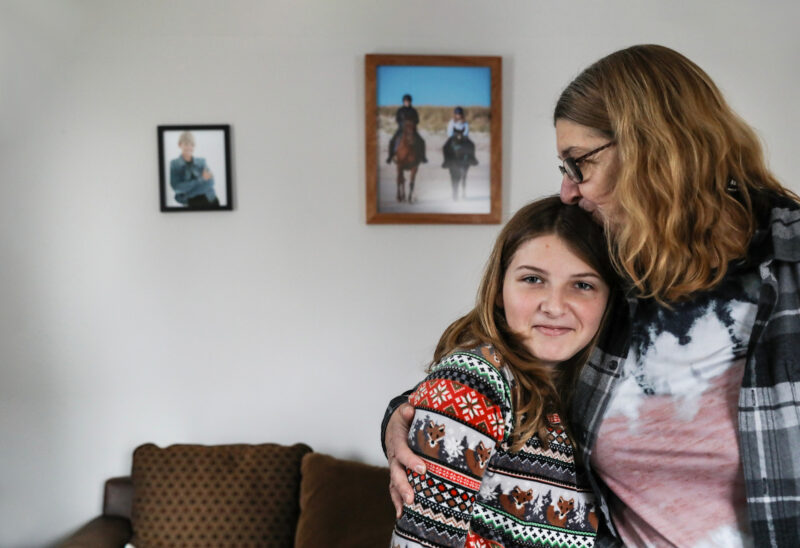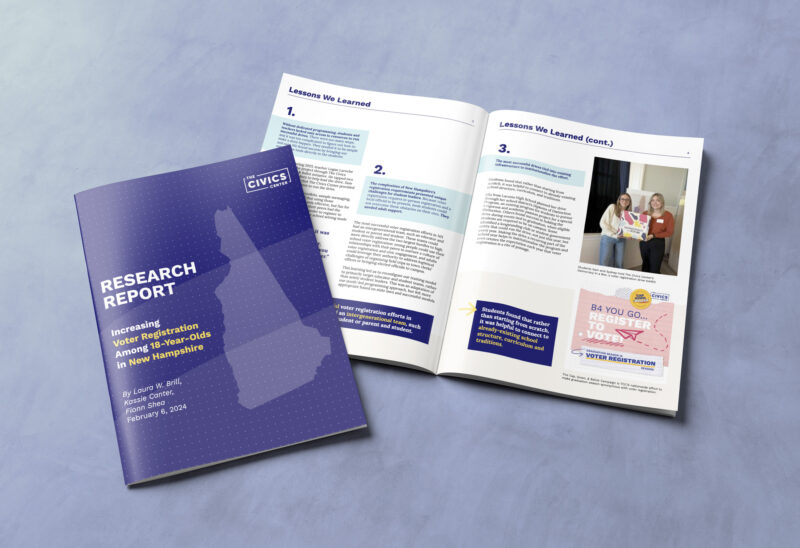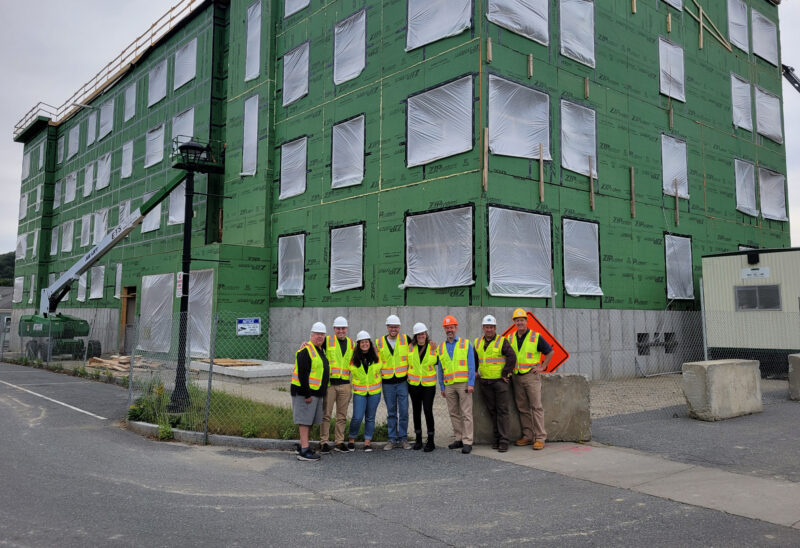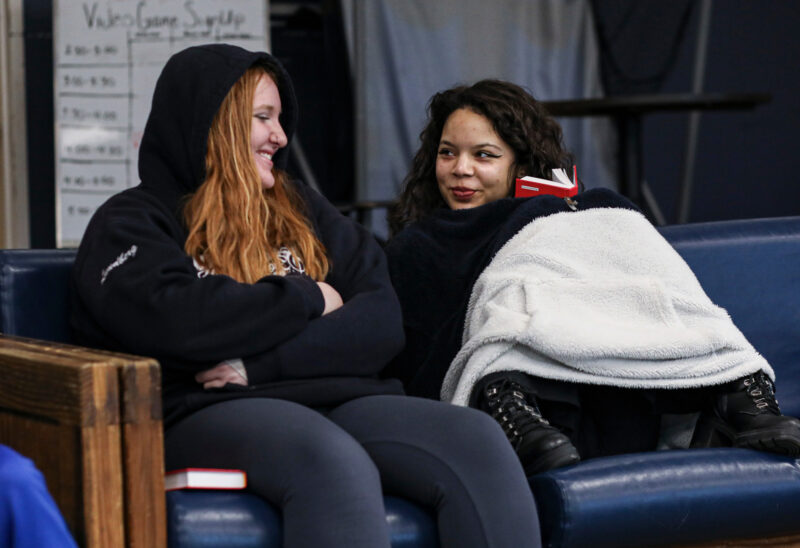Dr. Kyle Prohovich leaned over his patient and gently checked the site of the abscessed molar he had extracted earlier in the month. “Okay,” he said. “That’s healing nicely. It’s going to take a while for that tissue to completely heal over, but you’re on your way.”
The patient, David Ivanoff, a balding and gregarious 55-year-old, was back in the dental chair for the next stage in his treatment: pinpointing the source of continued pain related to one of the two molars remaining in the upper left side of his jaw. “It’s like a splinter stuck in your finger,” he told Prohovich.
Ivanoff lives in supportive, below-market housing and relies on a monthly $700 disability check. He once worked in his father’s interior painting business until a disability rendered him unable to work.
“How do you live on that?” he asked. “You pay the rent, you buy food.” After that, what’s left?
Ivanoff had walked 10 minutes with his wheeled cart in tow that winter morning to the Greater Nashua Dental Connection, a nonprofit clinic that for 21 years has served patients who otherwise might get no care at all. About half are children whose dental care is covered under Medicaid but lack access to private dentists. Adults on Medicaid, such as Ivanoff, are less fortunate. Their covered care is limited to emergencies and extractions.
The Dental Connection strives to fill other gaps, too. Medicare doesn’t provide dental coverage; more and more employers don’t offer it, either.
“Back when health insurance was put together by the health insurance gods,” said Lisa Woods, the Dental Connection’s executive director, “somebody forgot the mouth was part of the body.”
The clinic provides care to about 1,500 patients each year. On the day of Ivanoff’s visit, his was one of 18 appointments scheduled; a more typical day sees two dozen. The clinic is open four full days a week, with Fridays for overflow cases.
Fridays are also children’s days. The clinic reaches into 11 Nashua elementary schools as well as two Head Start centers, giving parents an opportunity to have their children screened for dental health issues, for free. Young patients in need of care — as many as 12 to 16 on a day — are shuttled from school to the clinic and back. “Believe it or not, a lot of these kids have never seen a dentist before,” Woods said. At the clinic, they have their teeth cleaned, get dental x-rays, sealants and fluoride and have their teeth examined by a dentist.
“We may never see them again and want to help as much as we can,” Woods said.
“No parent or guardian has ever gotten a bill.”
Scheduling at the junior high and high school levels makes it harder to bring those students to the clinic from school, so the clinic has launched a new initiative to conduct visual exams at those schools and send notes home in cases where care is needed.
The Dental Connection takes no patients who have private insurance. It charges reduced fees, based on Medicaid pricing, and offers payment plans once its clinicians determine what care is needed. “So they’re not overwhelmed by the cost,” Woods said.
The clinic relies on the generosity of the Greater Nashua community, from dentists who volunteer their time to financial help from the United Way, Nashua Rotary and other organizations and individuals. (Once, a gentleman who overheard Woods discussing an office chair purchase at Staples stepped in and paid for it.) The Charitable Foundation has supported the Dental Connection with grants for nearly two decades.
Last year,10 area dentists donated 266 hours of care at the clinic, while others took on clinic patients in need of advanced treatment at their offices. “Volunteer dentists are huge to me,” Woods said. “Volunteer hygienists, too. The dental community in Nashua is extremely generous.”
Prohovich, who graduated from dental school in 2018, serves as the clinic’s full-time staff dentist. “I love working here,” he said.
Every day brings the opportunity to change lives in what Prohovich calls “a vastly underserved population,” from putting school children at ease in the dental chair to helping adult patients chew without pain or fitting dentures that provide the confidence for a job-winning smile. “This work needs to be done,” he said.
Prohovich and his wife are expecting, and in time he will leave the clinic for private practice while continuing to volunteer. That’s the norm, Woods said. The clinic’s full-time dentist tends to be a short-timer at the beginning of his or her career or near the end, but for all, it’s a labor of love. The same, she said, is true of the clinic’s two front-desk workers, one of whom is bilingual, two dental assistants, one of whom is also bilingual, and its hygienist. “All of us make a fraction of what we could make in a private practice,” said Woods, who has worked at the clinic for 15 years.
Back in the operatory, Prohovich zeroed in on the molar causing Ivanoff’s pain. The first and more expensive option was a root canal and crown. Medicaid would cover neither, and it’s not work the clinic is equipped to handle, so Woods would need to find a specialist willing to take on Ivanoff’s case. The second option: an extraction. “This is a pretty important tooth,” Prohovich explained. “Lots of crunching.”
Prohovich renewed Ivanoff’s prescription for antibiotics to control the underlying infection until he could return for a follow-up. “If I take this one out,” he told Ivanoff, “it can lead to issues on the other side, and I don’t want that.”
“Okay,” Ivanoff answered. And then: “I got a joke.”
Prohovich waited.
“Why do all dentists have beautiful teeth?” Ivanoff said.
“Why?”
“I don’t know. You tell me. You’re the dentist!”
In the hallway outside, Ivanoff chatted with the front-desk staff as he scheduled his next visit. He held his reminder card high in confirmation before opening the door to leave, tugging his cart behind.

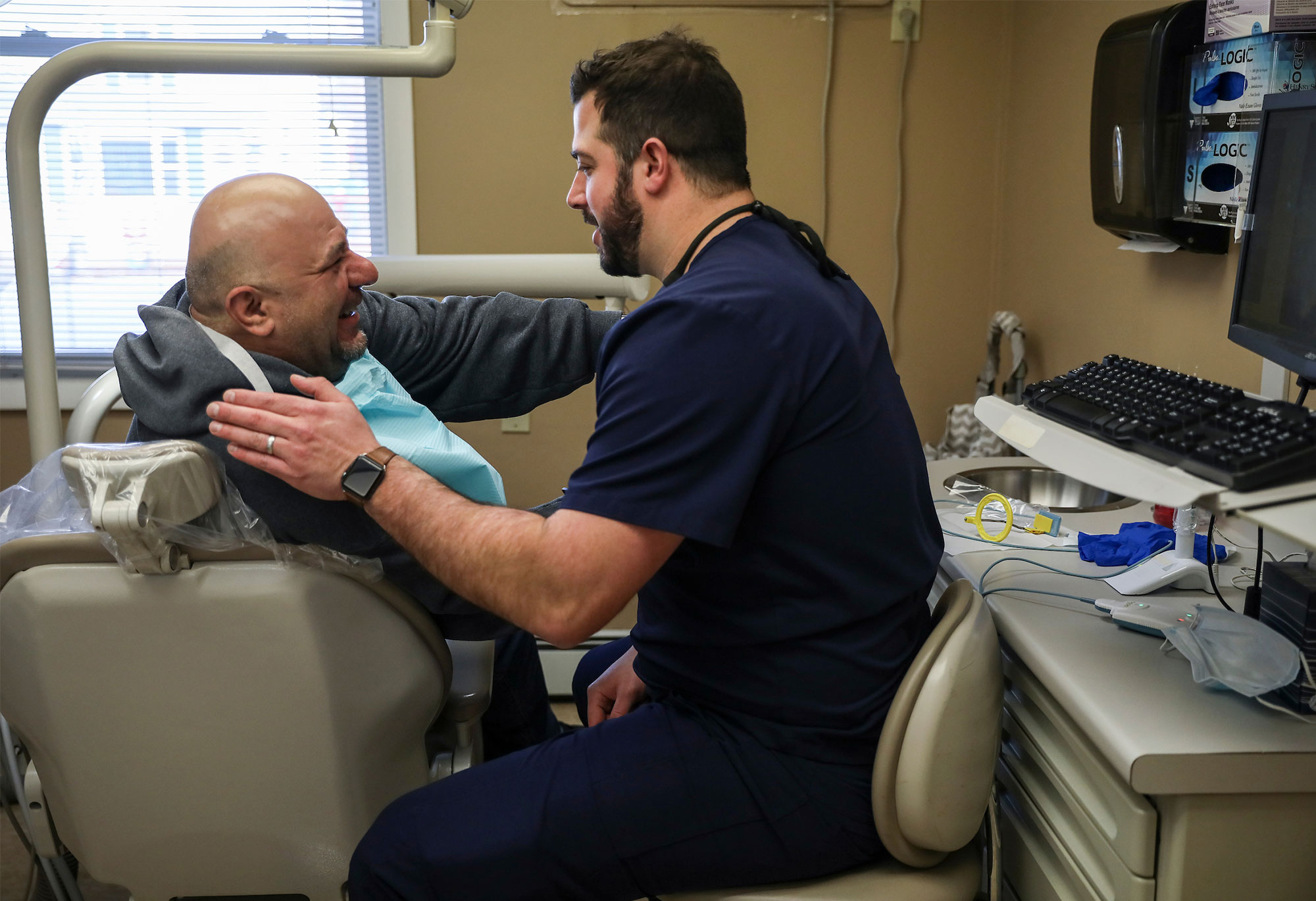






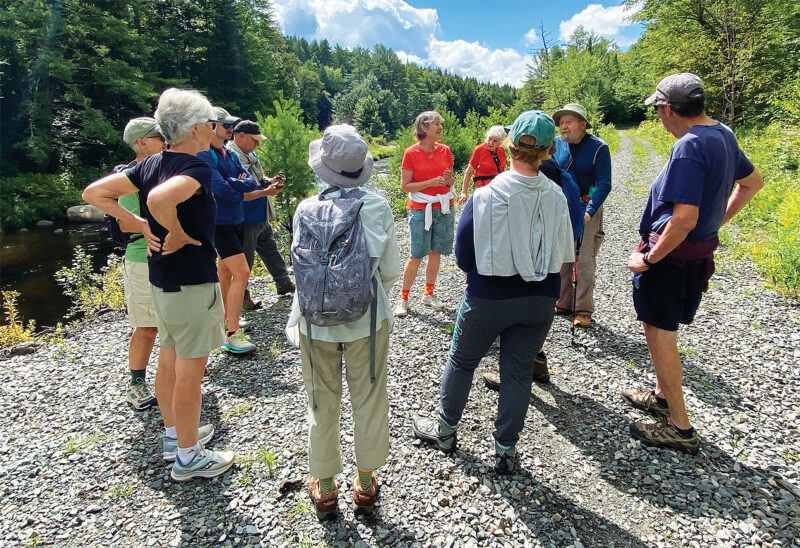
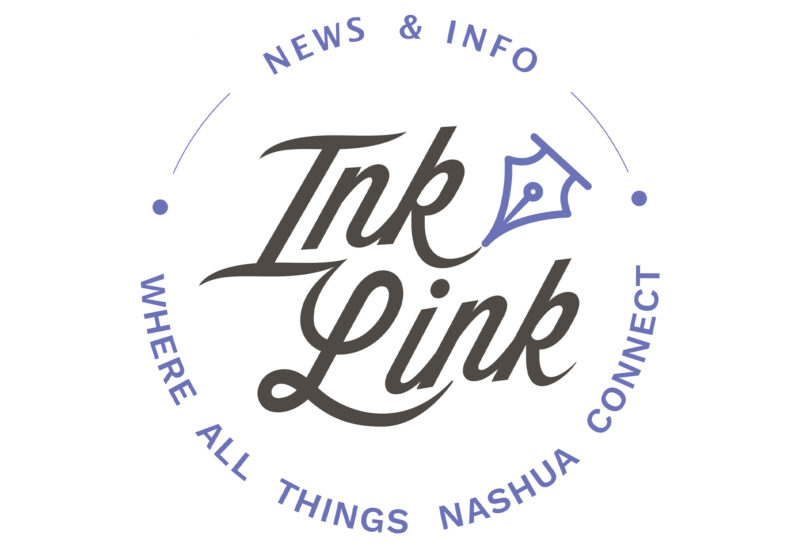
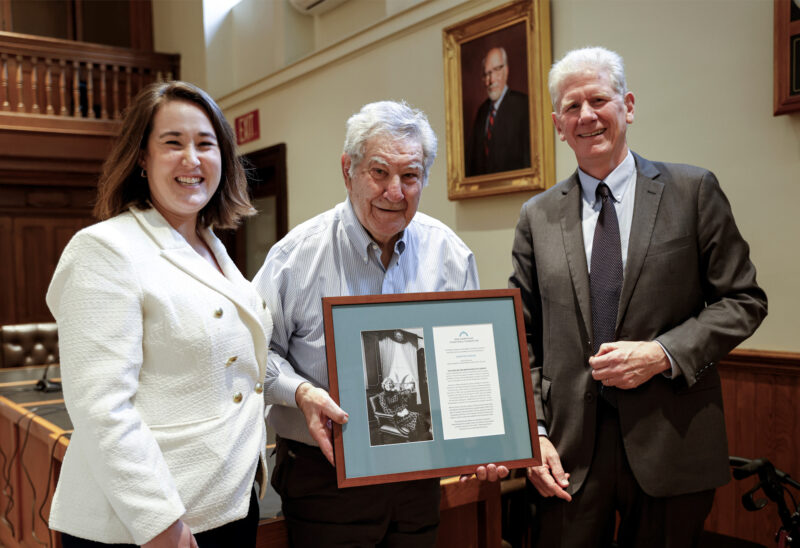

![Rev. Heidi Carrington Heath joined Seacoast Outright. [Photo by Cheryl Senter]](https://www.nhcf.org/wp-content/uploads/2024/05/Heidi-Carrington-Thumbnail-800x548.jpg)



